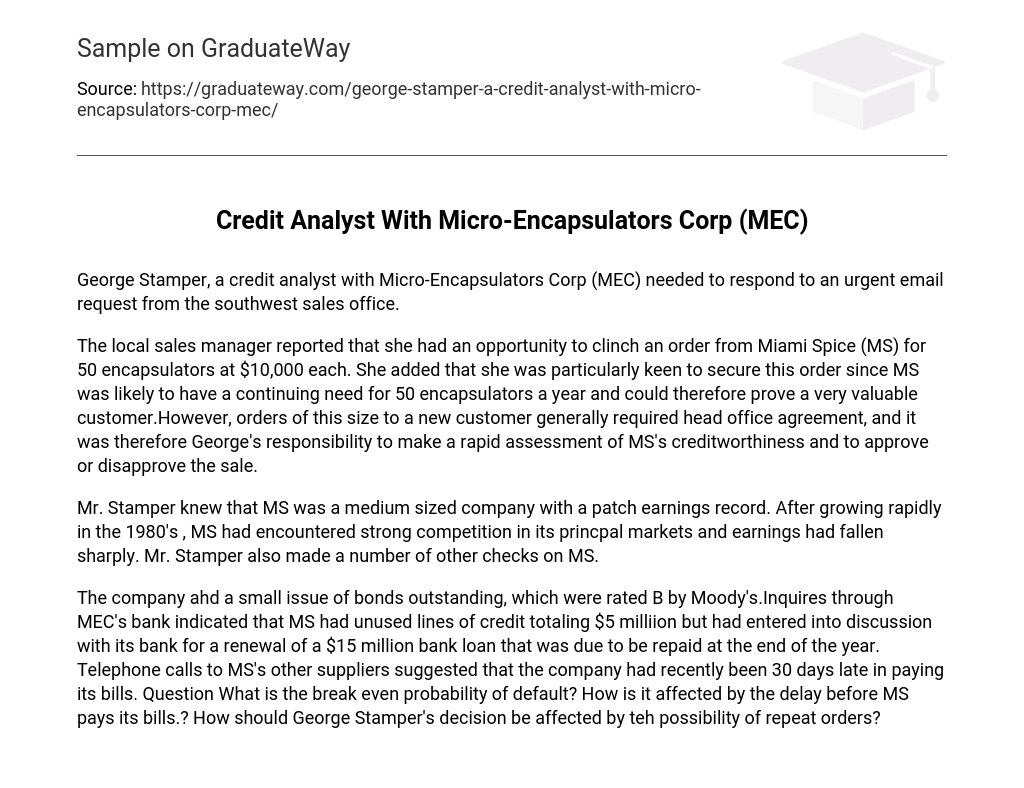George Stamper, a credit analyst with Micro-Encapsulators Corp (MEC), received an urgent email request from the southwest sales office. The local sales manager informed him about an opportunity to secure an order from Miami Spice (MS) for 50 encapsulators at $10,000 each. The sales manager emphasized the importance of securing this order as MS could potentially become a valuable customer by needing 50 encapsulators annually. However, orders of this magnitude from new customers typically required approval from the head office. George had the responsibility of quickly evaluating MS’s creditworthiness and deciding whether to approve or disapprove the sale.
Mr. Stamper was aware that MS was a medium-sized company with a shaky earnings history. Despite rapid growth in the 1980s, MS had faced tough competition in its main markets, resulting in significant reduction in earnings. Additionally, Mr. Stamper conducted various checks on MS. The company had a small outstanding bond issue that had a B rating from Moody’s. Information obtained through inquiries with MEC’s bank revealed that MS had available lines of credit amounting to $5 million but was in discussions with its bank regarding the renewal of a $15 million bank loan that was due by the end of the year. Telephone conversations with MS’s other suppliers indicated that the company had recently been 30 days behind on bill payments. In light of these circumstances, Mr. Stamper has questions regarding the break-even probability of default and how it is influenced by the delayed bill payments from MS. Furthermore, he needs to consider the potential impact of repeat orders on his decision-making process.





